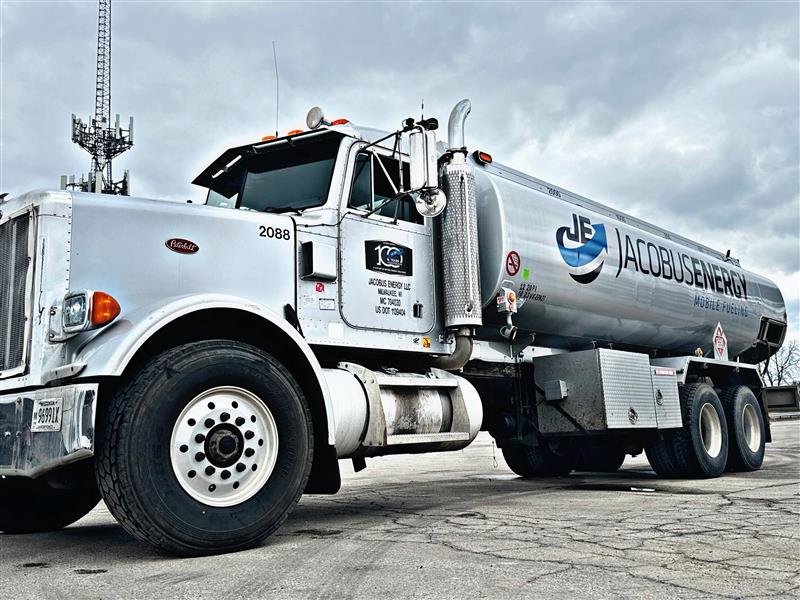Streamlining Fleet Efficiency with Modern DEF Delivery Solutions
Introduction
Diesel-powered fleets remain vital to the infrastructure of many industries, including transportation, construction, mining, agriculture, and logistics. As emissions regulations become more stringent, fleet operators are increasingly required to use Diesel Exhaust Fluid (DEF) to ensure compliance with environmental standards. The implementation of Selective Catalytic Reduction (SCR) systems in diesel engines has made DEF an essential component in reducing harmful nitrogen oxide (NOx) emissions.
With DEF usage becoming a routine part of fleet maintenance, efficient and reliable delivery methods have taken center stage. Among the available options, bulk def delivery stands out as a practical and cost-effective solution for businesses that consume large volumes of DEF. This approach not only helps cut costs but also streamlines operations, minimizes downtime, and promotes sustainable practices.
This article explores the importance of DEF, the benefits of bulk delivery, and best practices for managing a dependable DEF supply strategy for commercial fleets and industrial operations.
What Is Diesel Exhaust Fluid?
Diesel Exhaust Fluid (DEF) is a non-toxic, colorless solution composed of 32.5% urea and 67.5% deionized water. It is used in diesel vehicles equipped with Selective Catalytic Reduction (SCR) technology to convert nitrogen oxides (NOx) into nitrogen and water vapor—two naturally occurring and harmless elements.
The SCR system injects DEF into the exhaust stream, where it undergoes a chemical reaction that significantly reduces harmful emissions. By helping diesel engines meet emissions standards without compromising engine performance or fuel efficiency, DEF has become a mandatory fluid for modern diesel operations.
DEF Usage in Industrial and Fleet Settings
For businesses with large fleets or off-road diesel equipment, DEF consumption can be substantial. On average, DEF usage accounts for about 2-3% of diesel fuel consumption. While this may seem minimal, the cumulative demand for DEF across large fleets can become significant. This is especially true for businesses with:
- Long-haul trucks
- Delivery vans
- Construction and mining equipment
- Agricultural machinery
- Municipal and utility fleets
Without a reliable DEF supply chain, operational continuity can be compromised. Running out of DEF can cause vehicles to enter “limp” mode or even shut down entirely, resulting in delays, productivity losses, and potential compliance violations.
Common DEF Supply Options
Businesses can access DEF through several supply methods, each suitable for different scales of operation:
- Small jugs (2.5 gallons): Convenient for individual vehicle use or emergencies, but not practical for regular high-volume demand.
- Drums (55 gallons): Suitable for medium-sized operations but still require manual handling and frequent restocking.
- Totes (275–330 gallons): Ideal for consistent but moderate DEF usage, requiring pumps and dispensing systems.
- Bulk DEF storage tanks: The preferred method for high-consumption operations, replenished through bulk def delivery from professional service providers.
Bulk delivery is quickly becoming the go-to choice for large fleets, providing unmatched efficiency and reliability compared to other methods.
Benefits of Bulk DEF Delivery
1. Cost Savings
Purchasing DEF in bulk significantly reduces the cost per gallon compared to buying smaller containers. Packaging, transportation, and labor costs associated with handling small quantities are minimized. Over time, these savings add up, improving the bottom line for businesses with heavy DEF consumption.
2. Operational Efficiency
With DEF stored on-site in large tanks, fleet operators avoid the hassle of frequent orders, manual refills, and inventory management. Bulk DEF delivery ensures that DEF is always available when needed, reducing the risk of vehicle downtime and improving overall fleet efficiency.
3. Reduced Environmental Impact
By eliminating plastic jugs and minimizing transportation frequency, bulk deliveries contribute to sustainability goals. Reduced packaging waste and lower emissions from delivery vehicles align with environmentally responsible business practices.
4. Automated Monitoring and Replenishment
Many bulk DEF systems are equipped with telemetry or level-monitoring technology. This allows the supplier to remotely monitor DEF levels and schedule deliveries automatically. Such automation ensures timely replenishment without the need for manual checks or emergency orders.
5. Improved Safety and Cleanliness
Bulk storage solutions typically include sealed, dedicated DEF tanks and dispensing systems, minimizing the risk of contamination. Since DEF is sensitive to foreign substances, maintaining cleanliness is critical for protecting the SCR system.
Components of a Bulk DEF Delivery System
A well-structured bulk def delivery system typically includes the following components:
- Storage Tanks: These may be above or below ground and made of materials resistant to DEF corrosion, such as polyethylene.
- Dispensing Equipment: Includes pumps, hoses, and nozzles designed specifically for DEF handling.
- Level Monitoring: Automated sensors track fluid levels and alert operators or suppliers when it’s time for replenishment.
- Heaters or Insulation: In colder climates, DEF can freeze. Temperature-controlled tanks prevent product degradation or system failures.
These systems are tailored to the size and scope of the fleet operation, ensuring maximum utility and minimal waste.
How to Choose the Right DEF Supplier
The efficiency of your DEF supply chain heavily depends on your choice of supplier. A dependable DEF partner should provide:
- Quality Assurance: DEF must meet ISO 22241 standards to prevent damage to SCR systems.
- Reliable Delivery: On-time bulk deliveries tailored to your usage patterns are essential.
- Support Services: Equipment installation, maintenance, and troubleshooting assistance should be readily available.
- Flexible Contracts: Look for suppliers that offer scalable contracts based on changing business needs.
- Transparent Pricing: Clear and competitive pricing without hidden fees ensures budget predictability.
Choosing the right supplier not only secures your DEF needs but also enhances long-term operational success.
Best Practices for DEF Storage and Usage
Proper handling and storage of DEF are essential to maintain its effectiveness and protect vehicle systems. Here are some best practices:
- Keep It Clean: Avoid contamination by using dedicated equipment for DEF. Do not mix with other fluids.
- Store at Correct Temperatures: DEF should be stored between 12°F (-11°C) and 86°F (30°C). Freezing and excessive heat can compromise its integrity.
- Protect From Sunlight: UV exposure can degrade the urea in DEF. Use covered or shaded storage areas.
- Check Expiry Dates: DEF typically has a shelf life of up to two years when stored properly.
- Train Staff: Ensure employees understand correct DEF handling procedures to avoid costly errors.
Integration With Fleet Maintenance Programs
Integrating DEF monitoring with your broader fleet maintenance program is a smart way to ensure smooth operations. By incorporating DEF level checks into routine inspections and using digital fleet management systems, operators can avoid surprise shortages and minimize downtime.
Some fleet management platforms even allow real-time monitoring of DEF levels and predictive analytics, offering valuable data to help schedule deliveries and prevent outages.
Supporting Environmental and Regulatory Compliance
Governments and regulatory agencies around the world are imposing stricter limits on vehicle emissions. The use of SCR systems and DEF has been instrumental in helping fleet operators meet these mandates. By adopting bulk def delivery, businesses not only ensure compliance but also position themselves as environmentally responsible leaders.
For companies that publish environmental, social, and governance (ESG) reports or pursue green certifications, having an efficient DEF management system in place is a tangible step toward achieving sustainability goals.
Future of DEF and Fleet Sustainability
As technological advancements continue to shape the future of fleet management, DEF will remain a cornerstone of clean diesel operations. Although alternative fuels like electricity and hydrogen are on the rise, diesel engines are expected to dominate many heavy-duty applications for years to come.
The demand for efficient and scalable DEF solutions will likely grow, making bulk def delivery an indispensable part of fleet operations. Investing in bulk DEF systems today not only secures immediate cost benefits but also ensures readiness for future compliance requirements and operational demands.
Conclusion
Diesel Exhaust Fluid is no longer just a regulatory requirement—it’s a fundamental element of modern fleet efficiency and sustainability. For operations with substantial DEF needs, diesel exhaust fluid bulk offers unparalleled advantages in cost reduction, reliability, and environmental responsibility.
By choosing the right supply model and partnering with a reliable provider, businesses can eliminate the logistical headaches of DEF management and focus on what they do best: running efficient, compliant, and productive operations. Investing in bulk DEF solutions is more than a smart business decision—it’s a strategic move toward a cleaner and more efficient future.








